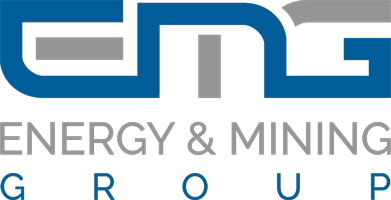By Emanuel Gherardi, Director Energy & Mining Group
One of the great conversations to stem from the broader discussion around diversity in the workplace has been the evolution of what our definition of diversity actually looks like. Traditionally we have always looked to gender and ethnicity as the two main markers to tell us how diverse our workforce is, but as the discussion has evolved so has our definition.
Over the last few years we have seen the birth of the “diversity of thought” conversation and one of the great positives of this has been the dialogue around “real diversity” and “real representation” in the workforce. With this has come a more proactive focus on nurturing opportunity for differently abled individuals within the work place.
A recent Australian Bureau of Statistics study tells us that one in five Australians live with a disability. Our employment statistics also tell us that up to 80% of those with disabilities are unemployed and face significant barriers to gaining employment. This raises some significant questions i.e. do we have a social responsibility to make disability a part of our diversity strategy, are we truly achieving diversity of thought in our workforce if we are not looking at ways to engage and retain individuals who are differently abled and from a commercial standpoint, do we have a massive untapped human resource on our hands here, which, given the opportunity will add substantial skill and cultural-engagement benefits to our workforce.
The natural assumption we can draw from the last point is that if this is a yes, then it has the real potential to make our industry and its businesses a more attractive proposition to both the individual and the customer.
So, what are the benefits of having a diverse and inclusive workplace culture that also focuses on differently abled employees? These are some of the area’s that the WA Government disability services find that differently abled employees positively bring to the workplace:
- Reliability– People with disability have been found take fewer days off, take less sick leave and stay in jobs longer than other workers.
- Productivity – Once in the right job, people with disability perform as well as other employees.
- Safety Culture– Australian (Deakin University 2002) and overseas studies have found that workers with disability are no more likely to be injured at work than other employees.
- Good for business– People with disability have been found to build strong connections with customers. They boost staff morale and loyalty by helping to create a diverse workforce. Teamwork is enhanced. Real cost savings are realised through less turnover, recruitment and retraining costs.
- Hiring people with disability adds to the organisation’s overall diversity. It builds the company’s image among its staff, community and customers.
When discussing differently abled diversity, it’s important to note that the discussion only partially relates to those who are physically differently abled as evidenced by some of the fantastic opportunities being offered in industry and at an educational level. As recruiters we are seeing more of our clients request that we encourage differently-abled candidates to apply for their roles and we are seeing some fantastic opportunities at educational institutions evidenced by the amazing work being done at the Autism Academy at Curtin University, “an Australian social innovation initiative with the vision of harnessing the special talents of people with Autism for the collective benefit of those with Autism, industry and the wider community”
Whilst stereotypes and false myths still persist, as always, change is being led by the open-minded innovators and inevitably as the benefits become more apparent, the rest of the industry will follow suit. Change begins with discussion and we are certainly seeing discussion and even more encouragingly we are seeing significant action at both board level and on the ground.

